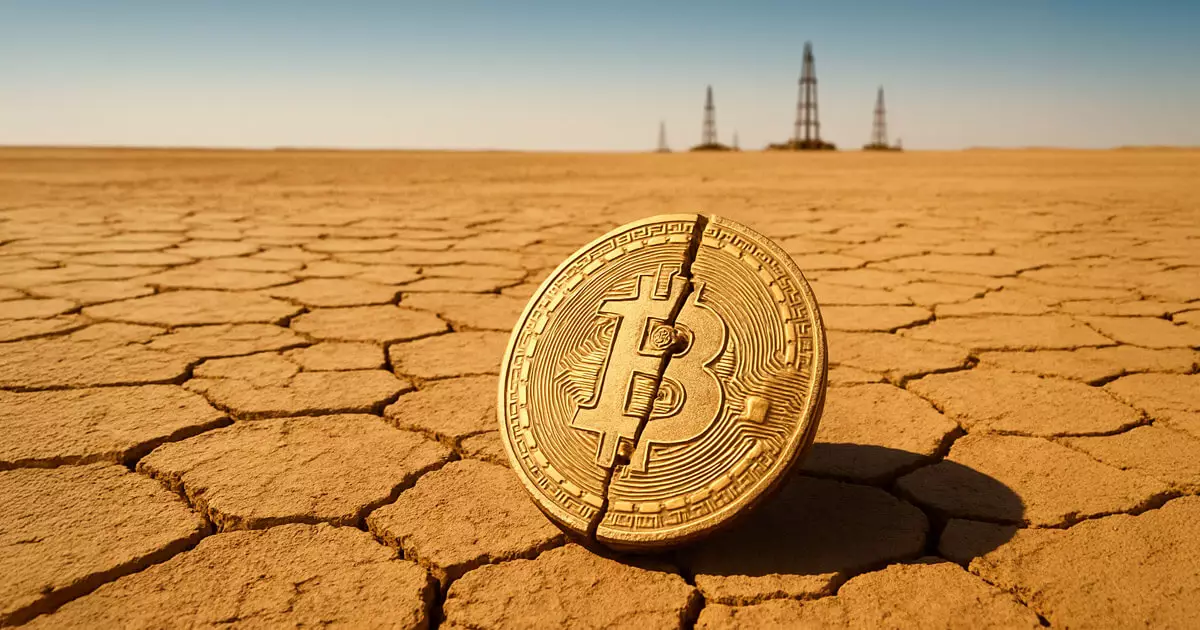Kuwait’s government has made headlines by outright banning Bitcoin mining, citing the strain it places on the electrical grid. While concerns about power consumption are valid, imposing severe restrictions like this smothers potential innovation. Countries like El Salvador and Russia have embraced crypto activities, leveraging local resources to create jobs and promote economic growth, rather than quashing aspirations. Instead of promoting dialogue around sustainability, the Kuwait regime resorts to stifling what could be a revolutionary pathway for technological progress.
A Missed Opportunity for Economic Diversification
Kuwait, heavily reliant on oil, needs economic diversification now more than ever. The decision to outlaw Bitcoin mining signifies a failure to recognize the potential of blockchain technology as a bridge to new economic frontiers. By banning this operation, Kuwait is blind to the developing world where Bitcoin mining can bolster economies, especially when paired with sustainable energy sources. It’s not just about mining; it’s an opportunity to engage in high-tech industries, knowledge transfer, and investment. Why not explore responsible mining that utilizes waste energy or solar output instead of outright prohibition?
The Real Threat Lies in Overregulation
The Ministry of Interior’s claims that Bitcoin mining poses a safety threat and burdens the electrical grid obscure the core issue: overregulation is itself a danger. Every time a government opts for suppression over regulation, it sends entrepreneurs packing. The challenge of balancing energy consumption with crypto innovation is not insurmountable. Countries that foresee digital assets as the future are crafting solutions, while Kuwait digs in its heels. This outdated stance marginalizes the nation in the rapidly evolving global economy.
Regulatory Frameworks vs. Total Bans
Kuwait’s recent action resembles a knee-jerk reaction rather than a well-thought-out policy. Rather than constructively engaging with stakeholders to develop regulatory frameworks, the authorities are issuing threats. The result? A disjointed relationship between government and tech innovators. Developing guidelines for sustainable crypto practices would allow for energy efficiencies while enabling business growth. Markets thrive on clear regulations; total bans lead to underground operations that are harder to monitor and more difficult to tax.
The Missed Global Leadership Moment
Finally, Kuwait’s ban on Bitcoin mining highlights a critical moment lost in potential global leadership. While other nations are making bold strides in crypto adoption and environmental sustainability, Kuwait is choosing isolation. The upward trajectory of cryptocurrency and its associated technologies represents not just a financial revolution but a chance for global positioning. By sidelining itself from the conversation, Kuwait risks not only tech stagnation but also diminished relevance on the global stage.
While Kuwait’s commitment to safeguarding its electrical infrastructure is commendable, it must reconsider its ban on Bitcoin mining. An inclusive and constructive approach could lead to groundbreaking innovations and significant economic opportunities rather than an era of missed opportunities.
















Leave a Reply